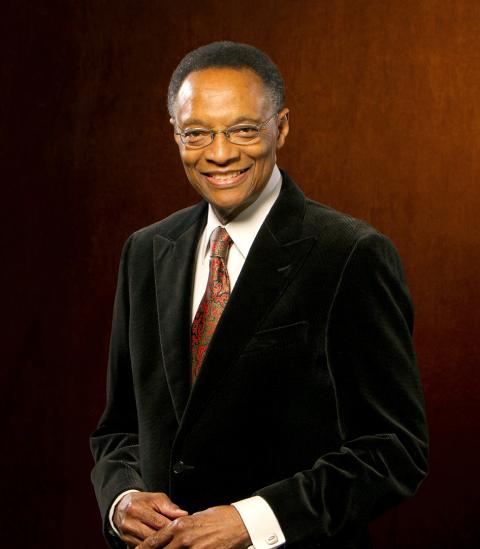The National Concert Hall’s summer jazz season continues with performances tonight and tomorrow from two highly accomplished American artists.
Trumpeter Terence Blanchard and his quintet take to the stage tonight. The New Orleans native entered the scene in the early 1980s, and served stints in the bands of jazz masters Art Blakey and Lionel Hampton.
Blanchard, 49, has since moved on to become one of the most recognized musicians of his generation, with a long list of composer credits and several Grammys.

Photo Ccourtesy of National Theater and Concert Hall
His hard bop style of playing was featured on McCoy Tyner’s Illuminations (2005), which won a Grammy for Best Jazz Instrumental album. Blanchard and his quintet also earned a Best Large Jazz Ensemble Album Grammy for their 2007 album A Tale of God’s Will (A Requiem for Katrina), which included pieces heard in Spike Lee’s 2006 documentary on the aftermath of Hurricane Katrina in New Orleans.
Blanchard, also known as a prolific film composer with more than 50 movie scores under his belt, is a longtime collaborator of Lee’s. He composed the soundtracks for the director’s early 1990s films Jungle Fever and Malcolm X, as well as the 2006 box office hit Inside Man.
For tonight’s show, he will be joined by Brice Winston on saxophone, Fabian Almazan on piano, Joshua Crumbly on bass and Kendrick Scott on drums.

Photo Courtesy of National Theater and Concert Hall
Tomorrow’s concert shifts from Blanchard’s sophisticated, African fusion-influenced bop sound to down-home gospel blues, funk and soul by pianist Ramsey Lewis and his quintet.
Lewis, 76, has a gospel and classical background that has deeply influenced his sound today, a combination of virtuosic piano playing, danceable grooves and soul.
The Chicago native made his initial mark on the jazz world in the 1960s with soul jazz albums such as The In Crowd and the song Hold It Right There, both of which earned him Grammy awards.
He dipped into jazz fusion in the 1970s, switching to electric piano for his hit album Sun Goddess (1974), which reunited him with a former bandmate, singer Maurice White of jazz fusion and disco group Earth, Wind & Fire.
In 2007, Lewis received a Jazz Master Award from the National Endowment for the Arts, the highest official recognition for jazz musicians in the US. He will be joined on stage tomorrow by guitarist Henry Johnson, keyboardist Tim Gant, bassist Joshua Ramos and drummer Charles Heath.
The National Concert Hall’s jazz program concludes on Sept. 9 with a concert by jazz fusion/smooth jazz group Yellowjackets. For more details on the program and artists, visit event.ntch.edu.tw/2011/jazz.

On April 26, The Lancet published a letter from two doctors at Taichung-based China Medical University Hospital (CMUH) warning that “Taiwan’s Health Care System is on the Brink of Collapse.” The authors said that “Years of policy inaction and mismanagement of resources have led to the National Health Insurance system operating under unsustainable conditions.” The pushback was immediate. Errors in the paper were quickly identified and publicized, to discredit the authors (the hospital apologized). CNA reported that CMUH said the letter described Taiwan in 2021 as having 62 nurses per 10,000 people, when the correct number was 78 nurses per 10,000

As we live longer, our risk of cognitive impairment is increasing. How can we delay the onset of symptoms? Do we have to give up every indulgence or can small changes make a difference? We asked neurologists for tips on how to keep our brains healthy for life. TAKE CARE OF YOUR HEALTH “All of the sensible things that apply to bodily health apply to brain health,” says Suzanne O’Sullivan, a consultant in neurology at the National Hospital for Neurology and Neurosurgery in London, and the author of The Age of Diagnosis. “When you’re 20, you can get away with absolute

May 5 to May 11 What started out as friction between Taiwanese students at Taichung First High School and a Japanese head cook escalated dramatically over the first two weeks of May 1927. It began on April 30 when the cook’s wife knew that lotus starch used in that night’s dinner had rat feces in it, but failed to inform staff until the meal was already prepared. The students believed that her silence was intentional, and filed a complaint. The school’s Japanese administrators sided with the cook’s family, dismissing the students as troublemakers and clamping down on their freedoms — with

As Donald Trump’s executive order in March led to the shuttering of Voice of America (VOA) — the global broadcaster whose roots date back to the fight against Nazi propaganda — he quickly attracted support from figures not used to aligning themselves with any US administration. Trump had ordered the US Agency for Global Media, the federal agency that funds VOA and other groups promoting independent journalism overseas, to be “eliminated to the maximum extent consistent with applicable law.” The decision suddenly halted programming in 49 languages to more than 425 million people. In Moscow, Margarita Simonyan, the hardline editor-in-chief of the